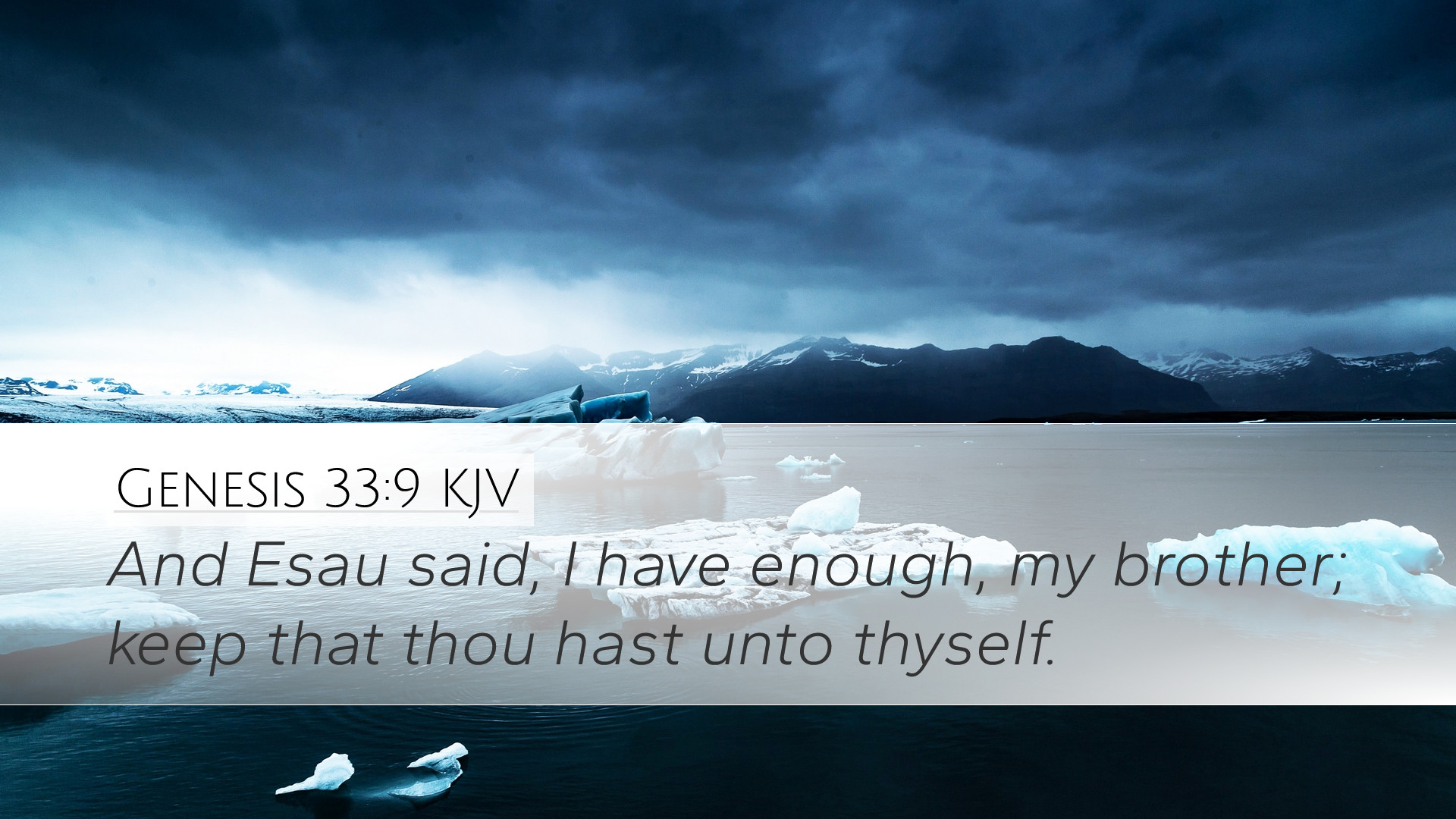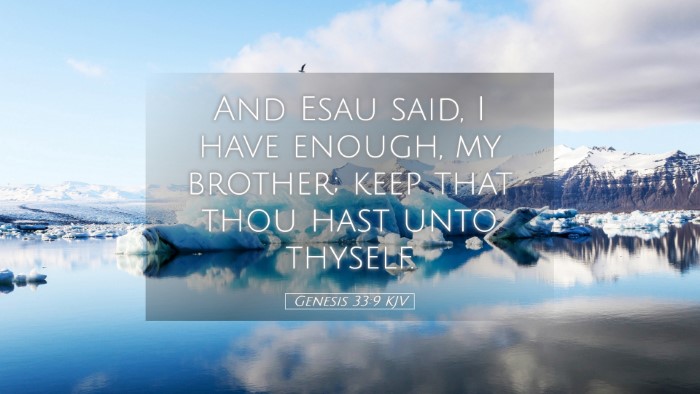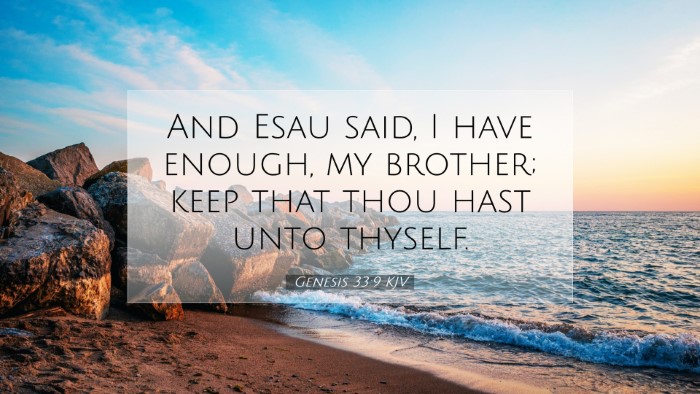Commentary on Genesis 33:9
Genesis 33:9 reads: "But Esau said, 'I have enough, my brother; keep what you have for yourself.'"
Contextual Overview
This verse occurs in a pivotal moment of reconciliation between Jacob and Esau, twin brothers whose relationship had been marred by betrayal and animosity. After many years of separation due to Jacob's deceit, the encounter in Genesis 33 is charged with emotion and significance.
Insights from Matthew Henry
Matthew Henry emphasizes the transformation in Esau's heart from a position of anger to one of generosity. He notes that Esau's willingness to receive Jacob, despite their troubled history, reflects a profound change and a display of true nobility. Henry points out that Esau's response to Jacob’s gifts signifies not only forgiveness but also the sufficiency of his own possessions.
- Henry highlights the importance of humility in Esau's character, suggesting that genuine reconciliation requires a humble spirit.
- He posits that Esau’s statement "I have enough" reveals his contentment and a shift away from a vengeful disposition.
Insights from Albert Barnes
Albert Barnes provides a critical examination of the implications behind Esau's words. He interprets Esau's response not merely as a refusal of Jacob's gifts but as a profound declaration of his own state of well-being. Barnes points out that the phrase "I have enough" speaks volumes about Esau's perspective on life and possessions.
- Barnes highlights the spiritual principle that material wealth must not overshadow familial bonds, underscoring that Esau's contentment is more significant than material gain.
- He notes that Esau’s choice to forgive and accept his brother without conditions represents a model for resolving conflicts.
Insights from Adam Clarke
Adam Clarke adds further theological depth, linking Esau's response to divine providence. Clarke argues that this incident illustrates the sovereignty of God in healing rifts and restoring relationships. He notes that God had softened Esau's heart, allowing for this moment of reconciliation.
- Clarke suggests that the phrase “keep what you have” can be seen as an acknowledgment of God's providential care for both Esau and Jacob, emphasizing that true wealth comes from God, not possessions.
- His commentary explores the theme of restoration and the redemptive narrative woven throughout Scripture, a theme exemplified in this reconciliation.
Thematic Reflections
The encounter between Jacob and Esau serves as a rich source for theological reflection. The themes of reconciliation, forgiveness, and divine providence resonate deeply within this verse.
- Reconciliation: This moment exemplifies the possibility of restoring relationships that have been broken. It teaches about the power of humility and forgiveness.
- Forgiveness: Esau's readiness to forgive Jacob is a significant aspect of this text. It underscores the necessity of letting go of past grievances and the transformative power of grace.
- Divine Providence: The encounter suggests that God orchestrates events in our lives to bring about His will, indicating that neither brother's journey is merely coincidental but a part of God's divine plan.
Conclusion
Genesis 33:9 encapsulates a moment rich with theological significance. It reflects on human relationships, the grace of forgiveness, and the sufficiency of God's provision. The commentaries of Matthew Henry, Albert Barnes, and Adam Clarke shed light on these themes, offering a depth of insight valuable for pastors, students, theologians, and Bible scholars alike.


